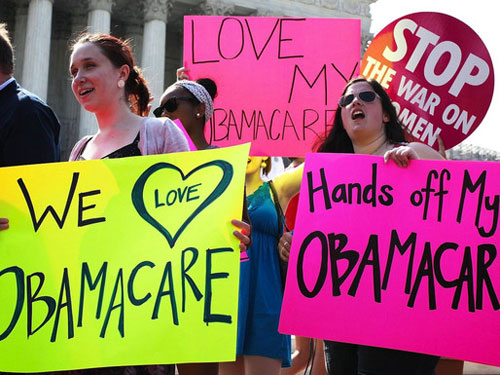
As this article is being written, the U.S. is currently experiencing a government shutdown. What happened? The official line is that the House and the Senate couldn’t agree on a bill to fund the government, and time has run out. Depending on who you ask, or what you read, this all boiled down to the fight over the Affordable Care Act (ACA), which has come to be known as Obamacare.
Of course, in looking closer at this situation, we know that other elements were at play. For example demands like defunding Planned Parenthood, expanding drilling on federal lands, and other “compromises” that the GOP wanted passed in order to implement the Affordable Care Act. Needless to say, a compromise was not reached and we are now in a government shutdown – the first one in 17 years. This means a whole new generation of youth are getting a first hand experience of our government at work.
Funny thing is, the Affordable Care Act is still happening. It began October 1. The ACA bill is long and it can be very daunting to read and understand how it will affect certain parts of the population, or the working people as a whole. In this technological age, most young people want the facts, in bullet point form if you please, so that we know what exactly we can expect. So, how will the ACA affect young people? Here are some key points and ways in looking at it:
At this point in time, there are about 47 million people in the U.S. without health insurance. This includes a good amount of young people. The ACA won’t greatly affect those that already have coverage through employers or government sponsored health care such as Medicaid or Medicare. So that leaves about 15 percent of the population not covered. With the ACA, they will be able to find affordable coverage. Some of the highlights of that and other changes to existing health coverage would be as follows:
- Young people would be able to stay on their parents insurance until the age of 26. Before, most insurers cut off the coverage at 21. Because of this provision, more than three million young people have gained coverage since approved. This works well in an economy when many young people are finding it hard to land full-time jobs that would give them the health coverage needed right out of college, high school, or post-graduate school.
- Everyone is entitled to free preventative care. This works well for young women seeking birth control and other contraceptives. They do not have to be charged extra for seeking birth control. Not to mention the population as a whole doesn’t have to pay extra for important health screenings such as for diabetes and HIV.
- With the health exchange you can see what you’re in for and you may even be eligible for a government discount. The websites provide a calculation of how much you will be paying based on your income. The lower your income the higher the tax credit you may be entitled to will be.
- Young women can’t be charged more than men. There’s a little (re: sexist) thing that insurance companies in some states do, where women are charged more than men for individual coverage. This practice will now be outlawed beginning in the new year.
- You cannot be charged for pre-existing conditions. This was another thing insurance companies were doing. Either they would reject people because of pre-existing health conditions or they would charge them more for it. Starting in the new year this will be illegal as well.
- In some states, if you make less that $16,000 a year, you may be eligible for Medicaid. This can come in handy for many young people who are having to settle for part-time work or lower wages in the current economy.
Overall, many of these benefits and changes don’t just apply to young people. Then again, young people aren’t some separate and apart species from the rest of the human race. What’s going on in government doesn’t just affect our parents or older loved ones, or older people in general. And even if it doesn’t affect us directly, it affects many people we know.
Photo: AP












Comments